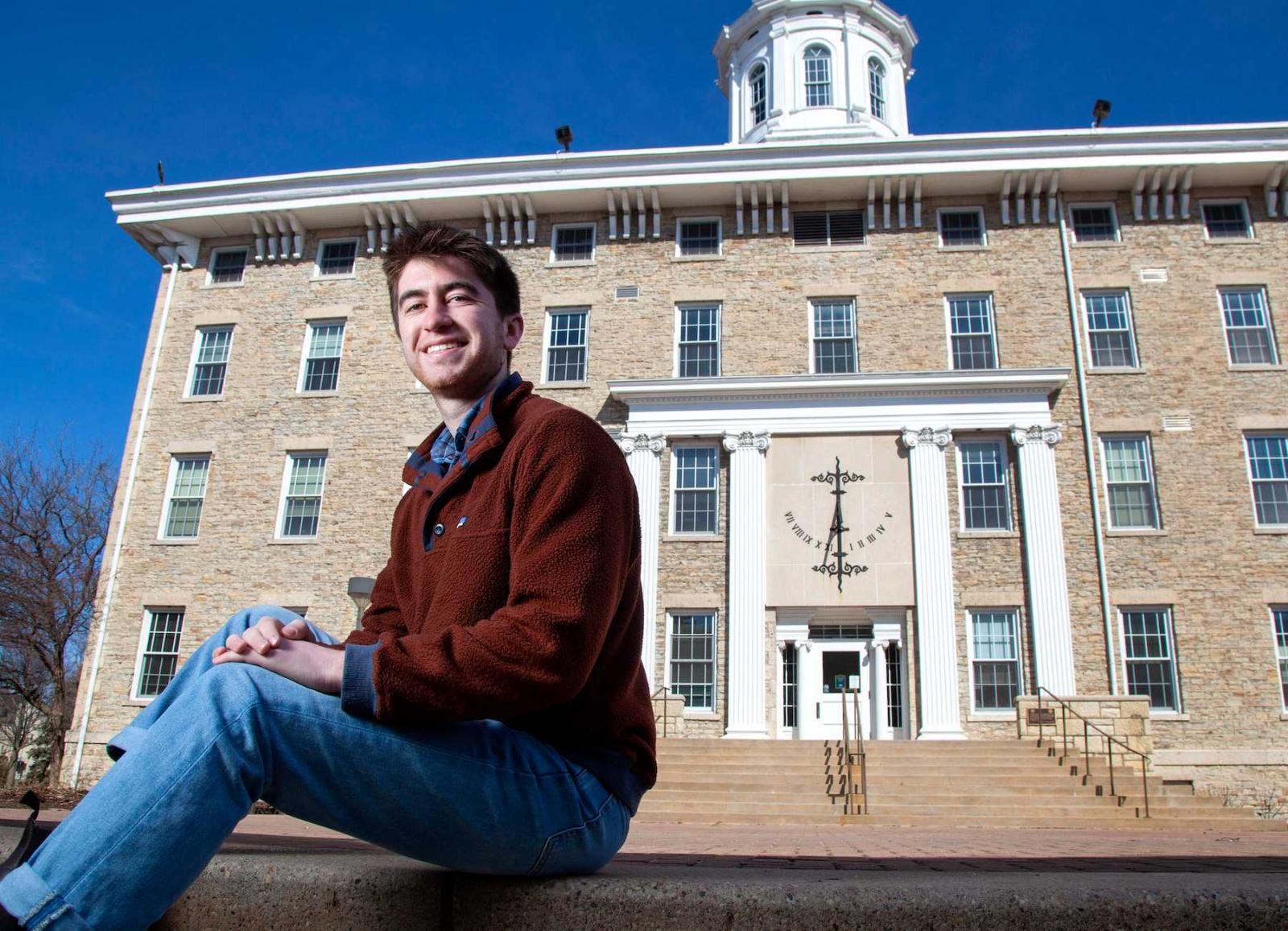Eli Ferrell, a Lawrence University senior, wants to use his recent experience in the Washington Semester program to pursue his passions.
The government major from Mill Valley, California, spent the fall in Washington, D.C. He attended the Washington Semester program through American University, which included a congressional internship with U.S. Rep. Ron Kind of Wisconsin, and he hopes it’ll be a stepping stone to eventually working as a congressional staffer for the House Agriculture Committee or the U.S. Department of Agriculture.
The Washington Semester program is open to Lawrence students of any major. The participating students study for a semester at American University while also pursuing both a relevant internship and an independent study project.
Arnold Shober, professor of government, serves as an advisor for the program, which can include study of American politics, international environment and development, international law, justice, conflict resolution, foreign policy, and global economics, among other topics. Any student interested can explore these topics in a governmental setting.
Learn more about the Washington Semester program
For his internship, Ferrell worked for Kind, who has represented the Third Congressional District of Wisconsin since 2007.
“I did a lot for him,” Ferrell said. “I helped write co-sponsor requests and scheduling requests, I wrote briefings for relevant memos. Did a lot of constituent correspondence... compiled press on the congressman on a daily basis; in the morning I would go in and compile the relevant news he was mentioned in so he’d be aware what was going on.”
A bevy of Lawrence experiences
Ferrell’s list of accomplishments at Lawrence is already impressive. It started with him participating in the Triple Crown, a series of 200-mile bike races held every year in northern California.
“Freshman year, I was super involved in the bike team,” said Ferrell, who also said “people knew me as ‘the bike guy.’”
Ferrell found himself on his path against suffering during Fall Term of his sophomore year. Interested in religions and wanting a hands-on experience, he traveled to Bodh Gaya, India, the place where the Buddha is said to have been enlightened.
“I really just wanted to travel,” Ferrell said. “I think you learn so much more through experiences, or at least, remember more through experiences.”
While in Bodh Gaya, Ferrell stayed in a monastery and studied various Buddhist sects.
Ferrell’s studies also included Buddhist-Muslim conflicts, for which he journeyed into rural Myanmar (formerly known as Burma) to talk to local Buddhists about Myanmar’s Muslim communities.
Ferrell also has found ways to make positive impacts on campus and in Appleton.
“I was in LUCC my first two years; that was a hoot, a lot of fun,” he said.
Ferrell and some friends advocated for “Meatless Mondays” in Andrew Commons, an effort to lessen the amount of meat being served on campus, and made an application to the Environmental Sustainability Committee to install a bike stand and pump in front of Sage Hall.
“It’s not super public, but I’m still super stoked we got that done; that was fun,” Ferrell said of those efforts. “It feels so good to have a little impact on Lawrence.”
Ferrell’s outreach has extended beyond campus through his work for support agencies such as Harbor House, a domestic abuse shelter in Appleton. Ferrell would spend Monday evenings helping children at Harbor House while their mothers participated in programming.
In addition, Ferrell worked for a summer as an interpreter for Safe Passage, a nonprofit based in New York City that provides undocumented children facing deportation with free legal services such as affidavits, which Ferrell helped write.
“I think it helped me become really humble, much more compassionate, realizing what other people go through, realizing how much privilege I have,” Ferrell said.
Ferrell was originally a religious studies major, but has switched to a government major.
“I was drawn to Buddhism because it addresses the question of suffering on an individual level, but … I felt like government was more applicable to what I potentially might do,” he said.



